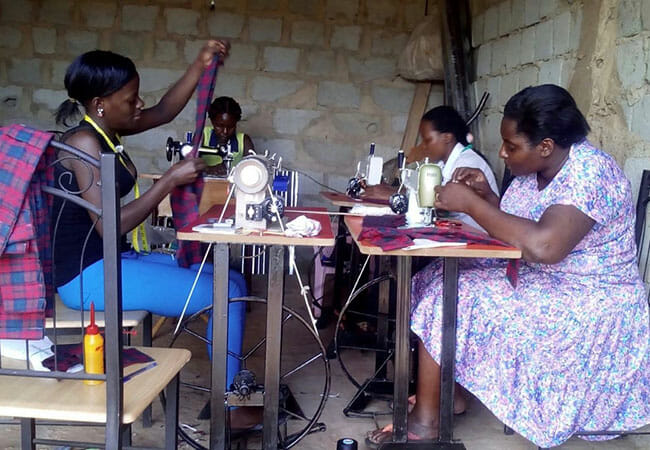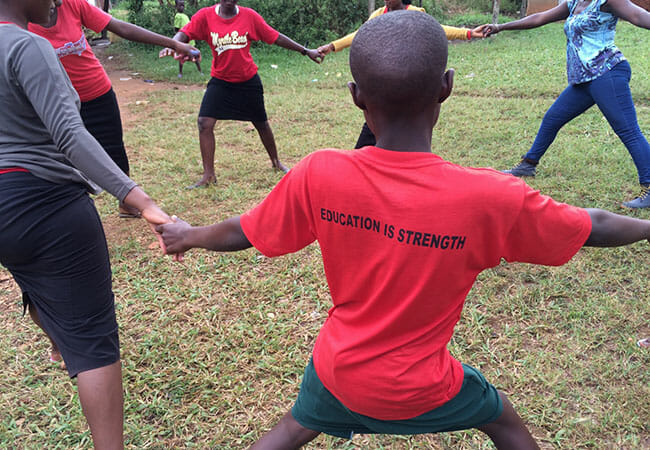Women’s Health Advocate Designs Reusable Menstrual Pads to Help Keep Girls in School
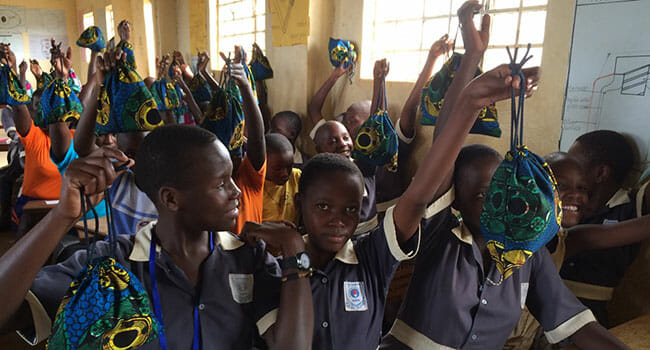
Meet Daily Point of Light Award honoree Ellie von Wellshiem. Read her story and nominate an outstanding volunteer, family or organization as a Point of Light.

Courtesy: Ellie von Wellsheim
Students at the St. Kizito School, located near Wakiso, Uganda, receiving MoonCatcher kits.
At least once a month, Ellie von Wellsheim presides over sewing bees where she guides the hands of volunteers as they sew pieces of brightly colored fabric into reusable menstrual pads. The pads are destined for girls in Uganda, Malawi, and a host of other developing countries that lack the money and access to purchase feminine hygiene products.
“To put it simply, we try to keep girls in school,” said Ellie, who is the founder of The MoonCatcher Project. “When it first came to my attention that there were girls dropping out of school because they had no way of dealing with menstruation, I was shocked.”
According to Femme International, “In East Africa, menstruation is one of the biggest reasons why adolescent girls miss school. Poor menstrual management is also the leading cause of reproductive tract infections in women globally.”
“Life is really hard if you can’t take care of this most basic thing that happens to women,” Ellie said. “And, we really want these girls to end up being in control – and be confident and be comfortable.”
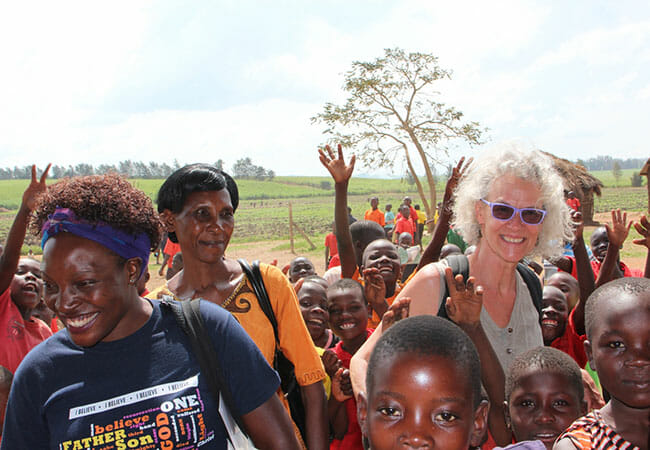
Courtesy: Ellie von Wellsheim
Ellie (right) pictured with two women who run sewing guilds that produce reusable MoonCatcher pads in Uganda.
Ellie started The MoonCatcher Project after hearing a friend, Denise Stasik, speak about a humanitarian trip to Zimbabwe. While there she met women using bark, banana leaves, old clothes and newspapers to manage their periods. Some even dug a hole in the ground and sat on it for a week because disposable sanitary products were inaccessible and cost prohibitive.
In response, Denise put together a prototype for a reusable pad that she shared with Ellie, who quickly picked apart the design. As the daughter of a dress manufacturer, Ellie learned how to sew garments from an early age and once worked as a patternmaker. She knew she could devise something better with a little help from her then college-aged daughter.
“I’d make the pattern and she’d wear it, and she’d come in and say, ‘No, no. It’s leaking here, it’s bunching here.’” Ellie said with a chuckle. “I’m fond of saying … we brought mother-daughter bonding to a whole new level!”
Once she perfected the MoonCatcher pad, the Schenectady, New York, resident recruited friends and associates to help out at monthly sewing bees. Sewing bees and knitting circles were popular in early American history as a way for women to socialize while joining forces to complete a common task – like making a quilt or completing other needle art projects. These monthly gatherings eventually became known as “moon bees.”
“It’s very hard to say no to Ellie because she’s so fabulous,” said Ginger Ertz, who was one of the first volunteers and is now a member of The MoonCatcher Project’s board. “She probably has the strongest social conscious and social justice principles of anybody you could ever imagine.”
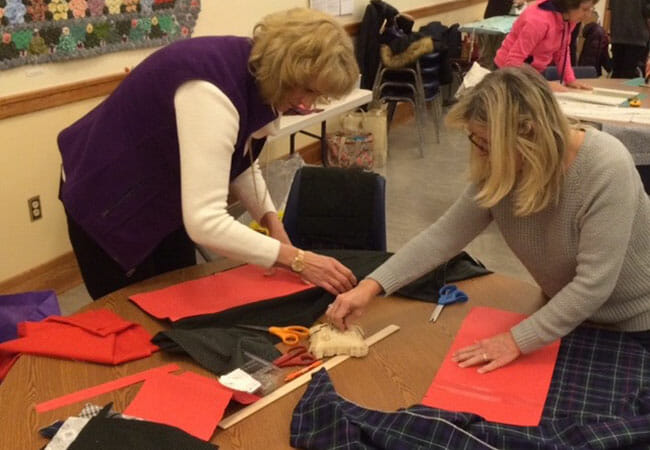
Courtesy: Ellie von Wellshem
Volunteers cut and measure fabric at a moon bee in Schenectady, New York.

